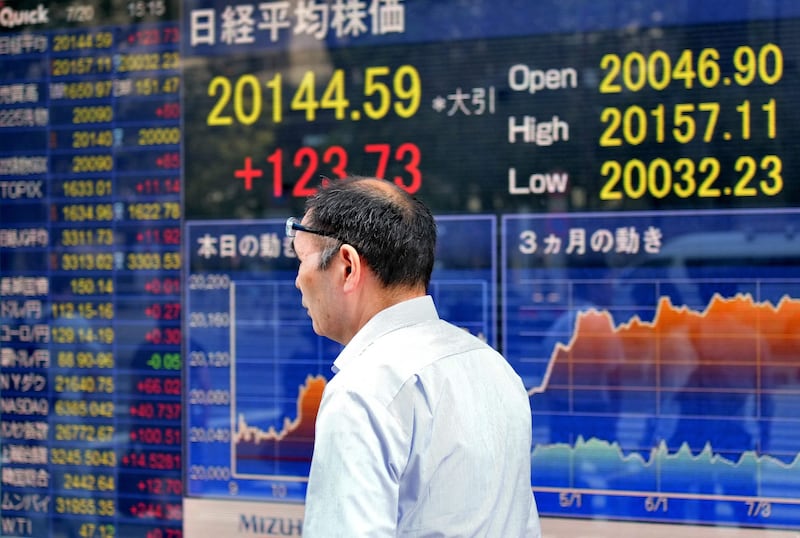Asian equities extended gains and the yen tumbled as the prospect of war between the US and North Korea receded, buoying stocks from New York to Tokyo and diverting flows away from haven assets.
Stock indexes from Tokyo to Hong Kong to Sydney climbed after the S&P 500 Index surged 1 per cent. Measures of equity volatility tumbled in Japan and Hong Kong after the CBOE Volatility Index, known as the VIX, slumped 21 per cent, paring some of last week’s surge. Federal Reserve Bank of New York chief William Dudley signalled another interest-rate increase this year is very much in the cards and suggested the central bank will announce its taper plans next month, giving the dollar and Treasury yields a boost.
_______________
Read more:
Index majors set to lock horns over stock exchanges
Dow Jones notches up another record high
Four key risks facing Asian markets over the next six months
_______________
Japan's currency, a haven in times of global tension, slumped after The Wall Street Journal characterised a North Korean media report as indicating that dictator Kim Jong Un had decided not to launch a threatened missile attack on Guam. The report, from KCNA on Tuesday, said Mr Kim praised the military for drawing up a "careful plan" to fire missiles toward Guam. Kim was cited by KCNA saying he would watch the US' conduct "a little more".
In economic news, the Australian central bank shifted the spotlight back on household debt in minutes for its August policy meeting released Tuesday. The Reserve Bank of Australia noted “need to balance the risks associated with high household debt in a low-inflation environment” in its decision to stand pat on policy.
Markets in South Korea and India are closed Tuesday for holidays.






